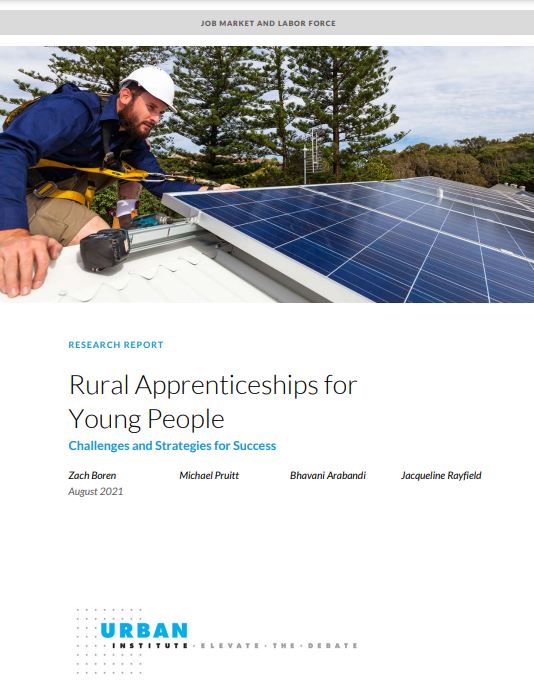This Urban Institute report provides an in depth look at rural apprenticeships by evaluating four programs in Maine, Arizona, Missouri and Mississippi. These case studies will help state leaders define the successes and challenges of developing and scaling rural registered apprenticeship programs for young people (16-24 year-olds) as well as offer policy recommendations for decision makers seeking to expand apprenticeship access in rural communities.
Through the case studies, this report pulls together four ideas to federal, state and local policymakers and practitioners to take advantage of the benefits that rural apprenticeships bring to young people. They include:
- Establishing apprenticeship coordinators: The role of apprenticeship coordinators in rural areas is crucial to seeing results within the program. These individuals provide coordination services throughout the duration of an apprenticeship including program launch, continuity of operations, expansion and a point of contact for all parties involved. The key piece of apprenticeship programs is to provide sustainability of programs in the rural setting.
- Advancing group sponsor apprenticeships: Group sponsorships provide companies an opportunity to work together to create better program outcomes then they would on their own. These models are typically led by partner organizations, which may include employers, colleges, industry associations, nonprofit organizations, labor unions, or other jointly operated organizations. In rural communities group sponsorship may provide employers an avenue to combine resources and better support apprentices in their journey.
- Addressing the digital divide: On the federal side breaking down silos of government, DOL and the Federal Communications Commission could provide opportunities for future stakeholder conversations that review ways to expand both access to broadband and youth apprenticeship.
- Solving transportation in the rural landscape: A common barrier to access of apprenticeship programs is transportation. As rural programs partner with employers to implement scalable programming, the barrier of dependable access to transportation will be a necessary item to address.







